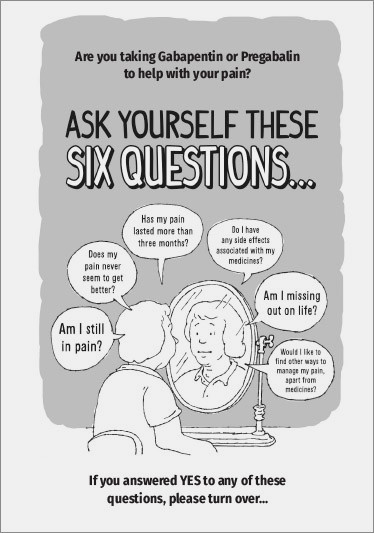More Skills, Less Pills
One day online training course
23 April 2024
Downloads
We’ve put together a transcript of the ‘chat’ from the event, along with a range of useful links:
Download the slides set from the training:
More resources
The Pain and Self Care Cycles
Exploring the Pain Cycle with the person you are supporting can help them recognise how pain can affect different aspects of their life in negative and self-reinforcing ways.
Also included is its companion diagram, the Self Care Cycle, which shows the positive outcomes of adopting a range of self-management approaches to undo or limit the impact of pain.
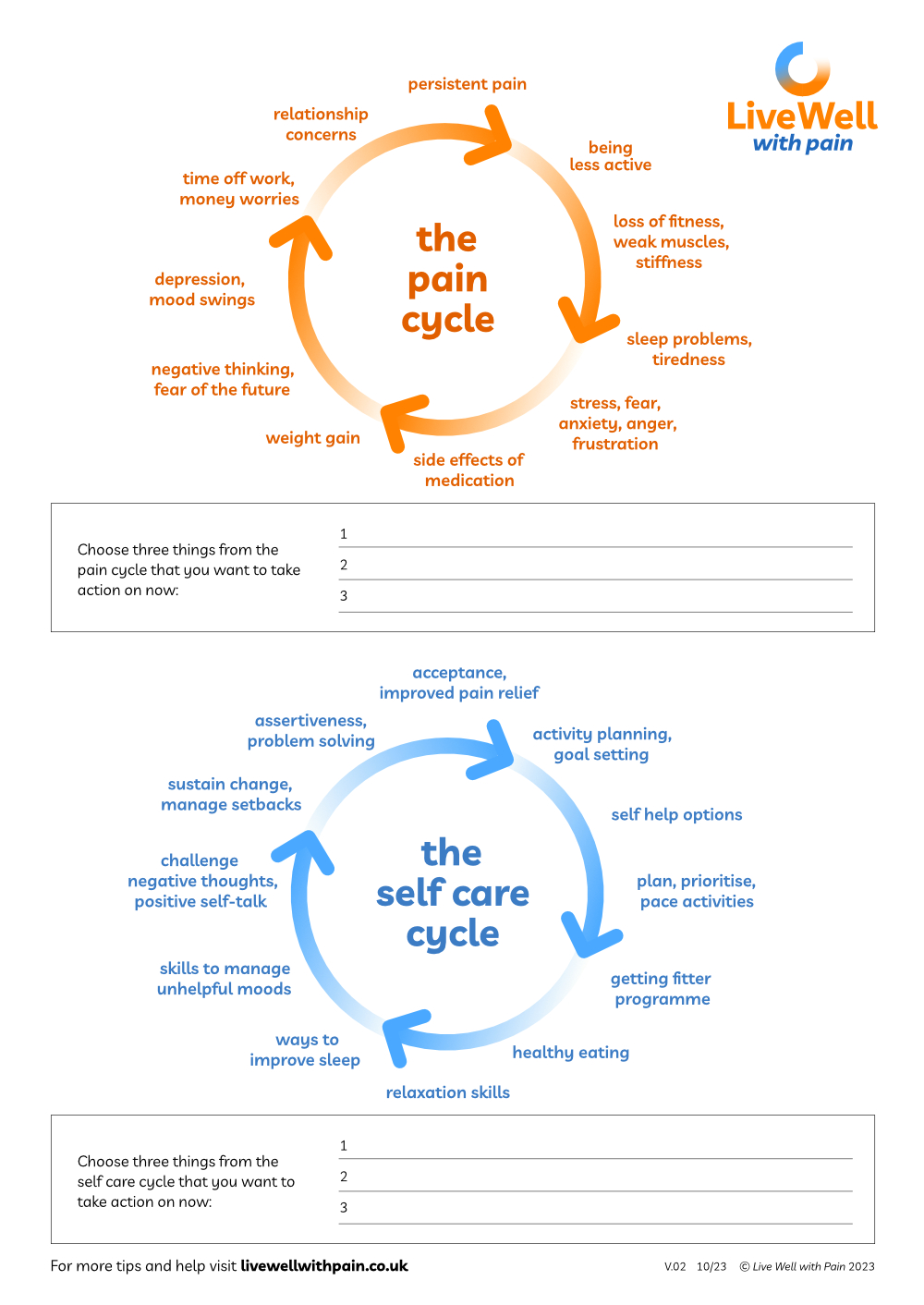
Pain is like an iceberg
Persistent pain is like an iceberg – there’s so much more to it beneath the surface. Use this sheet with your patient to explore how pain impacts many different areas of their life – areas that could be addressed using self management strategies.
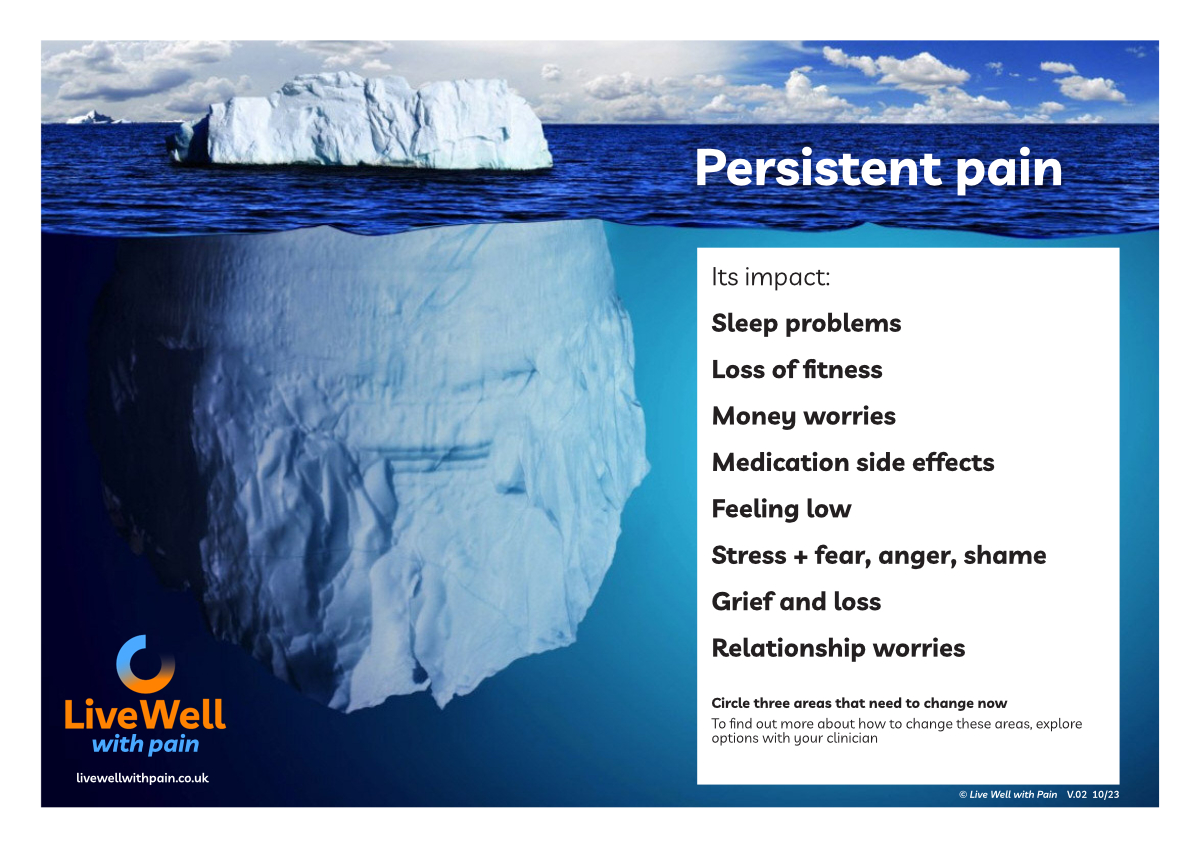
Live Well with Pain Health and Wellbeing Check tool
The Live Well with Pain Health and Well Being Check tool is a self-completion, person-centred tool that can be shared easily with patients and clients.
The data from this completed tool will help identify the actual current impact of chronic pain on the individual and their health.
You can find a more detailed explanation of the Live Well with Pain Health and Well Being Check tool here.
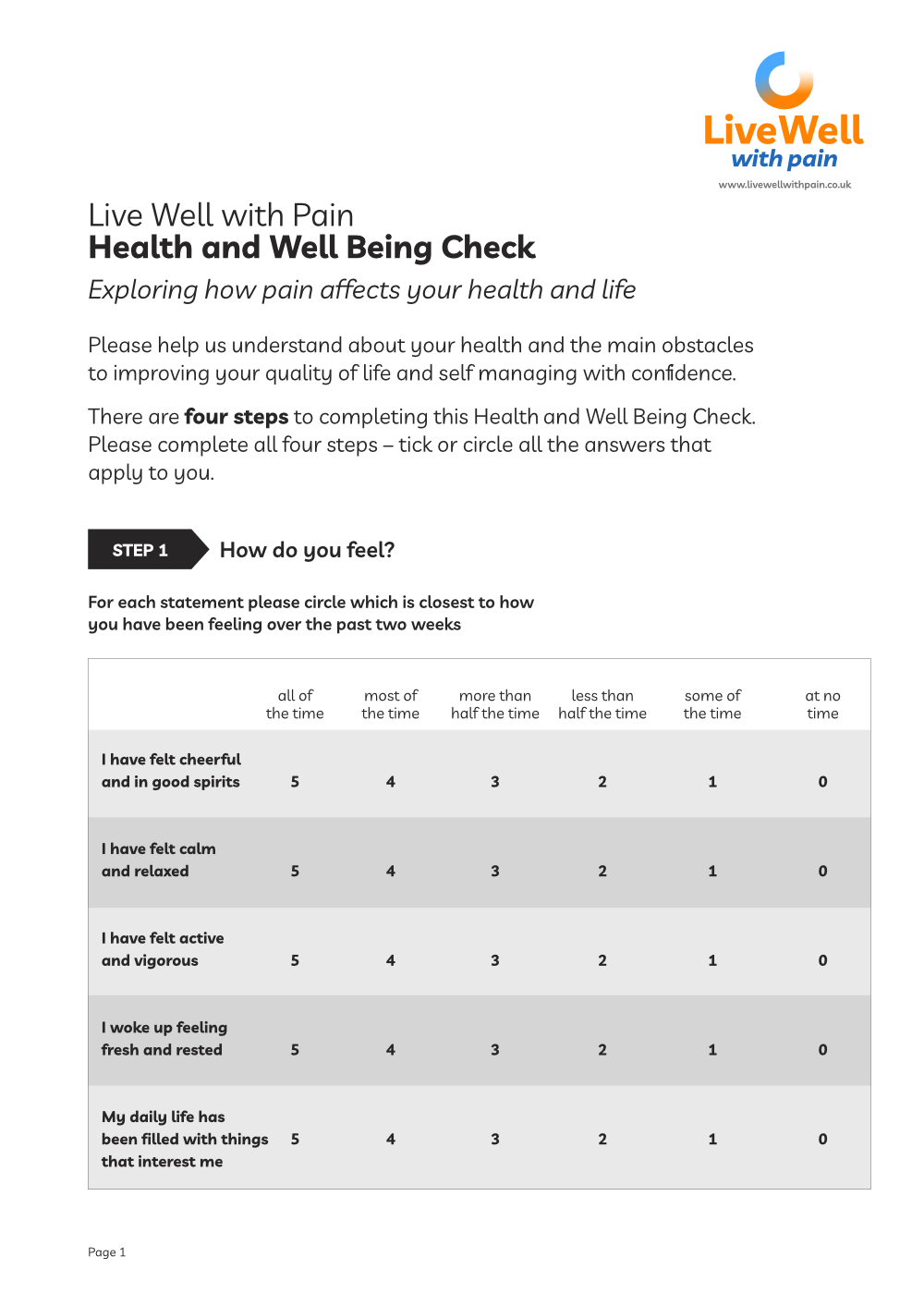
The Great Opioid Side Effect Lottery
Often, patients being prescribed opioids for their persistent pain do not know how little benefit they offer over the long term, or how prevalent and varied are the side effects people experience.
This A4 sheet, designed to be used by clinicians in their consultations with patients, is a simple way to raise the question of benefits versus side effects.
Using a ‘lottery scratch card’ metaphor, the sheet explains that opioids only actually reduce pain for around 10% of people in the long term, and their side effects can be both wide ranging and serious.
It lists many of the side effects, and provides a number of statistics to show how common these side effects are.
Working through the list with your patient, ask them to tick those side effects they are experiencing, as a starting point for introducing the idea of a medicines review.
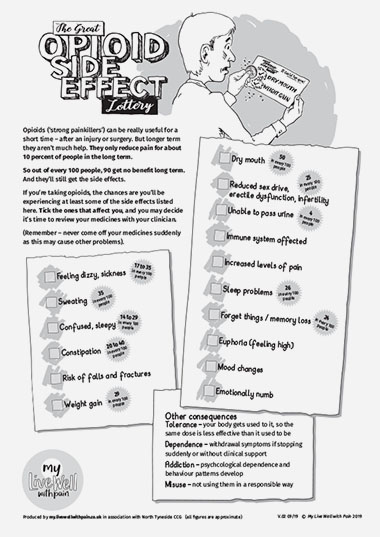
An opioid thermometer
How much opioid is a person taking? The opioid thermometer helps to estimate dosing based on oral morphine equivalent dose, and can be used to guide safer prescribing.
The PDF contains two versions: the first goes up to 120mg morphine per day, the second to 250mg morphine per day.
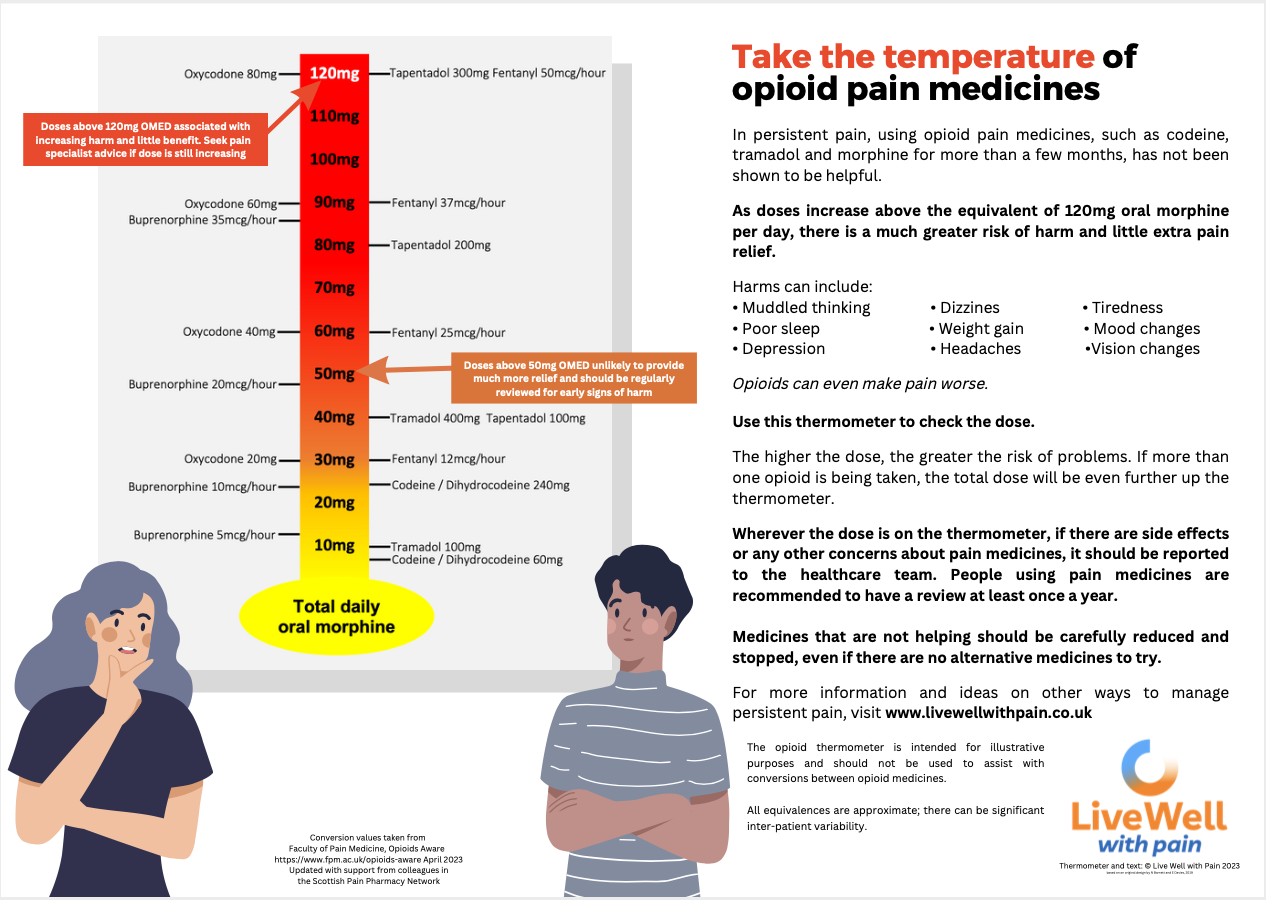
Medicines Decision Guide
Are you wondering whether the pain medicines you take are really helping?
Complete this guide and and share it with your GP, pharmacist or pain management team. It will help them understand why you may be thinking about continuing, reducing or stopping your pain medicines.
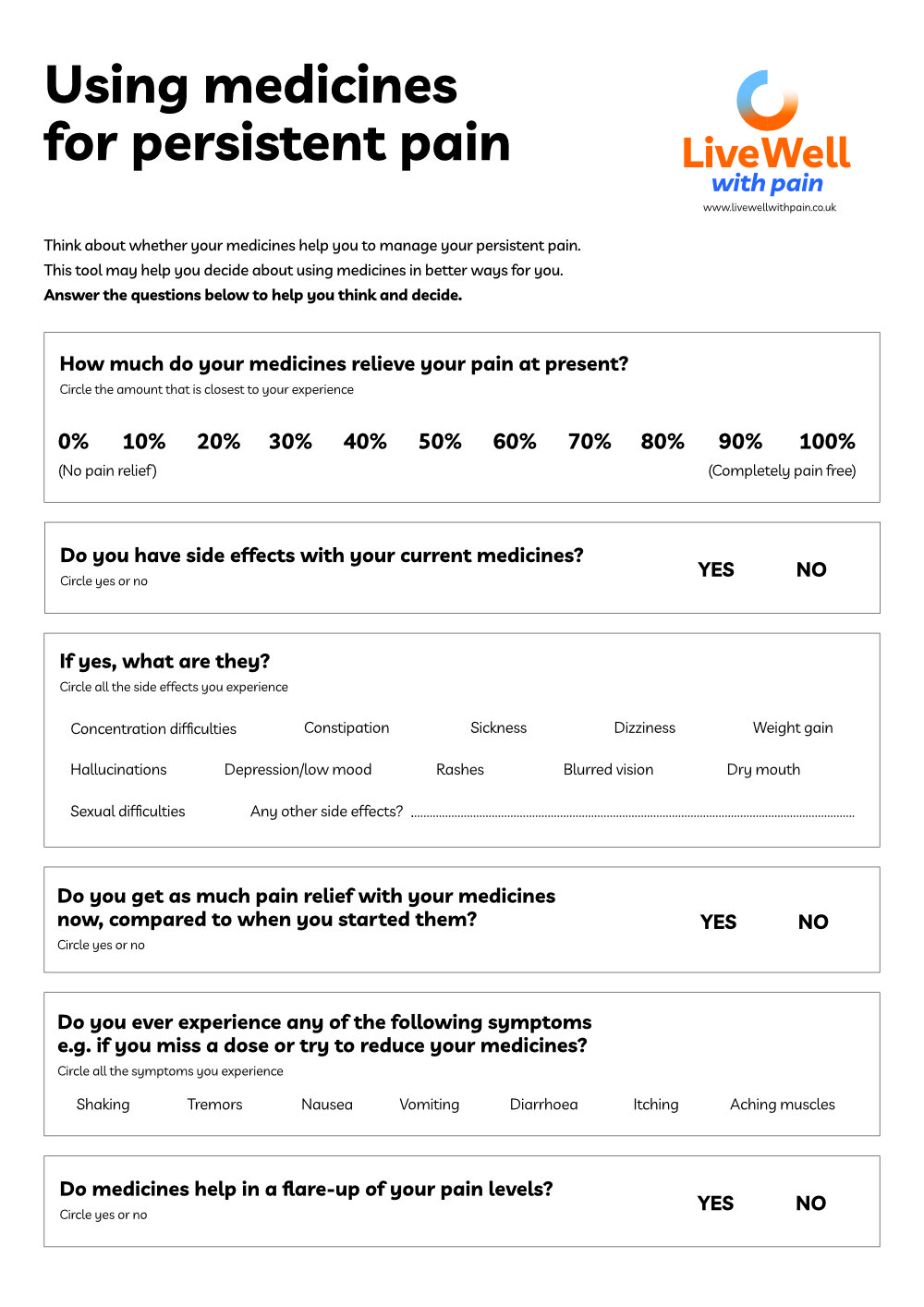
Ask yourself six questions
Designed for patients who have been taking Gabapentin or Pregabalin to help their long term pain for more than three months, this leaflet invites them to consider six key questions. And if their answer to any of them is ‘yes’ the leaflet provides an accessible overview of the main issues and what else, apart from opioids, a person can do to manage their persistent pain.
